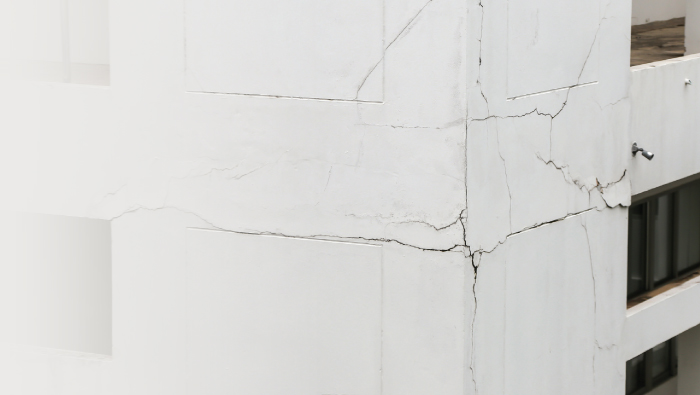
Muscat: The Ministry of Commerce and Industry (MoCI) has said that all builders and contractors in Oman need to ensure materials used in their projects comply with the laid down specifications.
The ministry’s warning came after they received reports of cracks being found in government and private buildings, due to the use of substandard materials. These could pose safety hazards to building occupants, as well as those in the immediate vicinity, besides threatening future investments in the real estate sector.
A statement from the Ministry of Commerce and Industry said: “Many contractors and experts in the country have asked the authorities to intensify inspection drive to monitor local cement manufacturing companies, as well as keep an eye on the various shops that sell building materials, where the chances of forgery are more. They also said that the consumers were considered to be the target of such fraudulent activities involving building materials. Changes can be brought about by choosing only those materials which comply with the standard specifications.”
“Such warnings have come after reports surfaced of cracks found in government and private buildings that were constructed only a few years ago,” added the ministry. Contractors and building developers in Oman did say that different buildings required different types of materials to ensure they stayed resilient and strong for many years.
“As an engineering consulting office, we are always keen to use Omani national products,” explained Nasser bin Abdullah Al Abadi, the CEO of Eamar Engineering Consultancy.
“We make it a condition for the contractors of projects we supervise to use local cements, provided their specifications are approved by the concerned authorities. We make sure that the correct and appropriate type of cement is used at every stage of construction work. The specifications in force in the Sultanate of Oman for construction work and the materials used therein are of Omani, Gulf, British and American specifications. As far as I know, there are Omani specifications for all types of cement.
“To control the quality and organise this sector, we ask the Ministry of Commerce and Industry to find a mechanism in collaboration with other professional institutions, such as the Oman Society of Engineers, to monitor and examine imported cements, to ensure they comply with Omani standards,” he added.
“Plants that produce concrete in the Sultanate also need to use cement conforming to local specifications.”
Another building contractor, Saleh bin Abdullah Al Khumbashi, added that low-quality cement shortens the lifespan of any building, with defects being visible soon after the completion of projects.
“Cracks found in residential buildings would greatly reduce the willingness of real estate investors to put resources into the country,” he said.
“The damage caused by the low-quality cement shortens the life span of the project. The project owner must choose competent contractors who have skilled work forces and directly monitor the execution of the work. They must also know the skills of the contractors, and must purchase cement from those stores recognised by the competent authorities, and not import cement from abroad, except after ensuring that this cement was in compliance with the standard specifications of the country.
“Tests carried out for any cement shipment arriving into the country would help us know the quality of cement, as well as the ratio of materials present within, as will control over the cement factories and periodic tests in these factories and at construction sites,” he explained.
Mubarak bin Hamdan Al Hadhrami, another contractor, added: “There are unfortunately many shops selling low quality building materials. This is one of the reasons cracks appear in buildings. It is a huge threat to the lives of their residents. The low quality of construction materials will affect the economy of a country, as it will stop people from developing that country’s real estate sector. I urge consultants and contractors to show sincerity in following up their construction work, and ask them to not tolerate violators. They should take appropriate measures to deter them, so that they do not repeat violations.”
Hamoud bin Ali Al Hatimi, a construction contractor who handled government projects, called for strict laws against traders and companies which imported low quality construction materials, electrical appliances and cement.
“Laws should be enacted to protect the consumer who is affected by the bad quality of cement,” he explained. “Do not import cheap cement, but first ascertain the type of the cement required for the particular project, and ensure it meets national specifications.”
Said bin Salih Al Salti, a contractor, said, “There are a number of contractors who build and sell housing units. In their works, they use cheap cement, iron, electrical appliances, and water supply systems which don’t conform to standard specifications. Within a short period of time, cracks begin to appear in houses. Following this, there is reluctance in the mind of people who want to purchase them, leading to a negative impact on the real estate sector.”